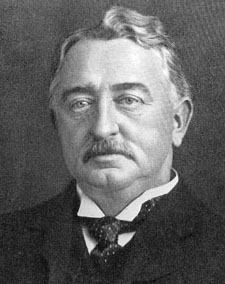The Rothschild Formula
By the end of the eighteenth century, the House of Rothschild had become one of the most successful financial institutions the world has ever known. Its meteoric rise can be attributed to the great industry and shrewdness of the five brothers who established themselves in various capitals of Europe and forged the world's first international financial network. As pioneers in the practice of lending money to governments, they soon learned that this provided unique opportunities to parlay wealth into political power as well. Before long, most of the princes and kings of Europe had come within their influence.

Rothschild Coat of Arms
The Rothschilds also had mastered the art of smuggling on a grand scale, often with the tacit approval of the governments whose laws they violated. This was perceived by all parties as an unofficial bonus for providing needed funding to those same governments, particularly in time of war. The fact that different branches of the Rothschild network also might be providing funds for the enemy was pragmatically ignored. Thus, a time-honored practice among financiers was born: profiting from both sides.

Enlargement of the Rothschild Crest
The Rothschilds operated a highly efficient intelligence gathering system which provided them with advance knowledge of important events, knowledge which was invaluable for investment decisions. When an exhausted Rothschild courier delivered the first news of the Battle of Waterloo, Nathan Rothschild was able to deceive the London bond traders into a selling panic, and that allowed him to acquire the dominant holding of England's entire debt at but a tiny fraction of its worth.

Lionel Nathan Rothschild was "elected" to
British Parliment in 1847
A study of these and similar events reveals a personality profile, not just of the Rothschilds, but of that special breed of international financiers whose success typically is built upon certain character traits. These include cold objectivity, immunity to patriotism, and indifference to the human condition. That profile is the basis for proposing a theoretical strategy, called the Rothschild Formula, which motivates such men to propel governments into war for the profits they yield. This formula most likely has never been consciously phrased as it appears here, but subconscious motivations and personality traits work together to implement it nevertheless. As long as the mechanism of central banking exists, it will be to such men an irresistible temptation to convert debt into perpetual war and war into perpetual debt.
The Rothschild Formula may be briefly summarized as follows:
- War is the ultimate discipline to any government. If it can successfully meet the challenge of war, it will survive. If it cannot, it will perish. All else is secondary. The sanctity of its laws, the prosperity of its citizens and the solvency of its treasury will be quickly sacrificed by any government in its primal act of self-survival.
- All that is necessary, therefore, to insure that a government will maintain or expand its debt is to involve it in war or the threat of war. The greater the threat and the more destructive the war, the greater the need for debt.
- To involve a country in war or the threat of war, it will be necessary for it to have enemies with credible military might. If such enemies already exist, all the better. If they exist but lack military strength, it will be necessary to provide them the money to build their war machine. If an enemy does not exist at all, then it will be necessary to create one by financing the rise of a hostile regime.
- The ultimate obstacle is a government which declines to finance its wars through debt. Although this seldom happens, when it does, it will be necessary to encourage internal political opposition, insurrection or revolution to replace that government with one that is more compliant to our will. The assassination of heads of state could play an important role in this process.
- No nation can be allowed to remain militarily stronger than its adversaries, for that could lead to peace and a reduction of debt. To accomplish this balance of power, it may be necessary to finance both sides of the conflict. Unless one of the combatants is hostile to our interests and therefore, must be destroyed, neither side should be allowed a decisive victory or defeat. While we must always proclaim the virtues of peace, the unspoken objective is perpetual war.








